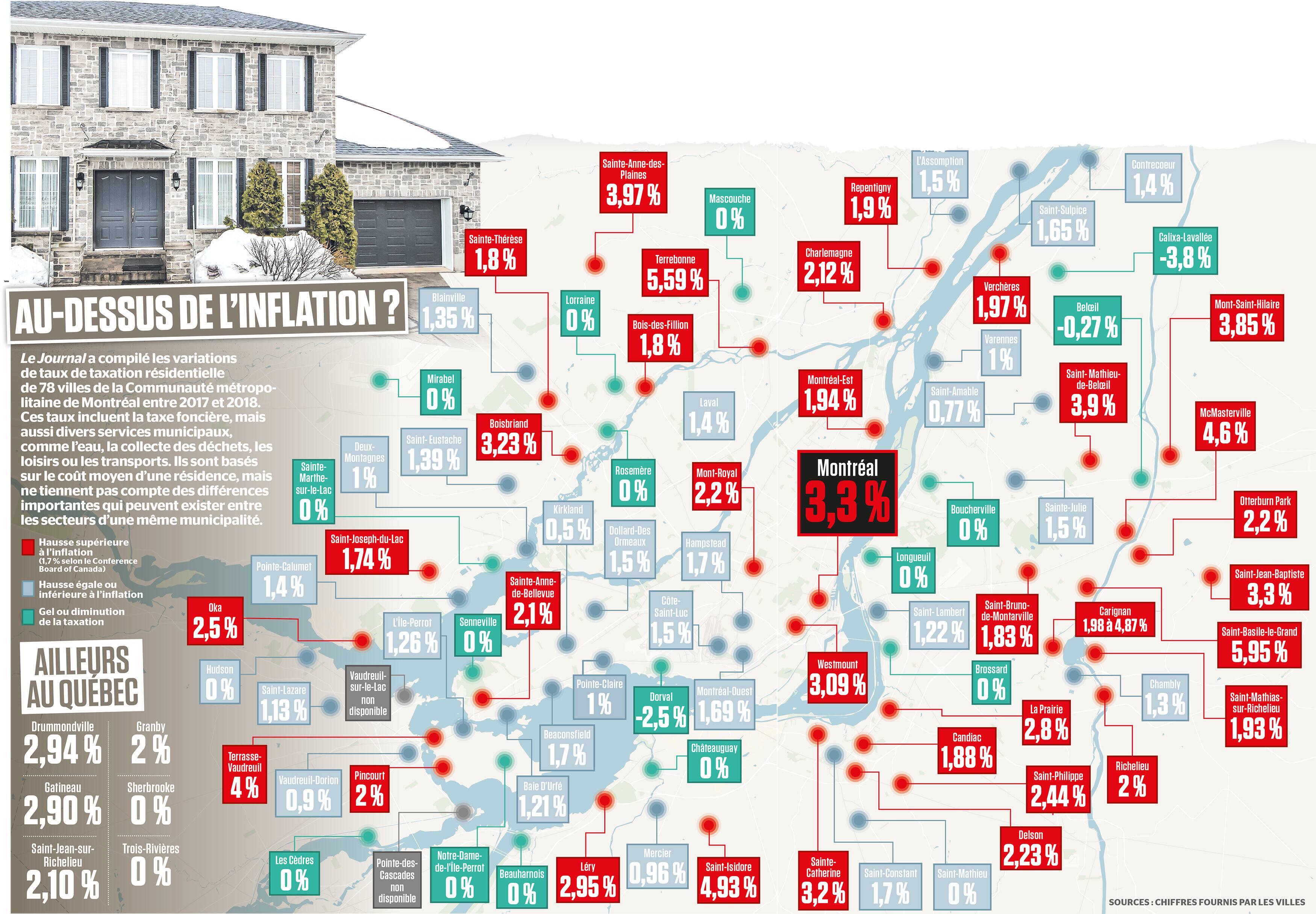Montreal is not only to raise taxes
Matthew Payen
Thursday, February 1, 2018 01:00
UPDATE
Thursday, February 1, 2018 01:00
Look at this article
The dissatisfaction of many owners and traders risk to be revived in the next few days to the receipt of the tax bills some of which show increases three times greater than the inflation rate.
Unless exempted, the municipalities had until yesterday to submit their budget 2018 at the ministry of municipal Affairs. Already, several tax hikes challenged have made headlines in recent weeks, as the 3.3% in Montreal and 10 % ultimately cancelled in Rigaud.
According to a census conducted by The Newspaper, nearly half of the cities in the metropolitan area have increased taxes above the level of inflation estimated at 1.7 %.
In Terrebonne, the mayor Marc-André Plante was presented in mid-January, a significant jump of 5.59 %, or $ 131 per residence. A figure that it has to be qualified, according to him, because it includes the returns of a tax on biting insects and another on transport.
Saint-Basile-le-Grand, the mayor Yves Lessard says about him have multiplied, the “contortions budget” to limit the increase to 5.95 %, or $ 160 per residence.
“It is sure that for some it is difficult to accept, but if we had charged all expenditure increases to the citizens, increase in taxes would have been 14 %,” says Mr. Lessard. “I do not know a single elected official who is happy to announce a tax hike, stresses Alexandre Cusson, mayor of Drummondville and president of the Union des municipalités du Québec (UMQ). The problem is that when the needs are too strong, there is not a lot of choice. “
Diversification of the income
Currently, the property tax represents approximately 70 % of the revenues of the cities.
This quasi-dependence creates a strong pressure on the owners and shopkeepers who contribute to this tax, since at the same time, the requirements of the citizens to their municipalities to continue to increase.
“Today, cities are responsible for our lifestyles, our social mobility, and many services, but their funding sources are not changing,” says Ève-Lyne Couturier, a researcher at the Institute of research and socio-economic information (IRIS).
“The province of Quebec has embarked on the path of decentralization, but this is not sustainable if we do not give the cities the means to fund themselves,” says Florent Michelot, professor of municipal Affairs at UQAM.
QST and pot
For the two specialists, as well as for the UMQ, the solution would have to be by a diversification of sources of income. “Quebec could decide to return to cities a portion of the QST on certain products. This is done in several u.s. cities and in Europe, ” Mr. Michelot.
It is in this sense that the UMQ has claimed the third-party charges which will be levied on the sale of cannabis. “The legalization is going to cost money to cities to ensure the safety of the public, reminded the mayor Cusson. So if no amount of money we paid, this promise federal will become a municipal tax. “




